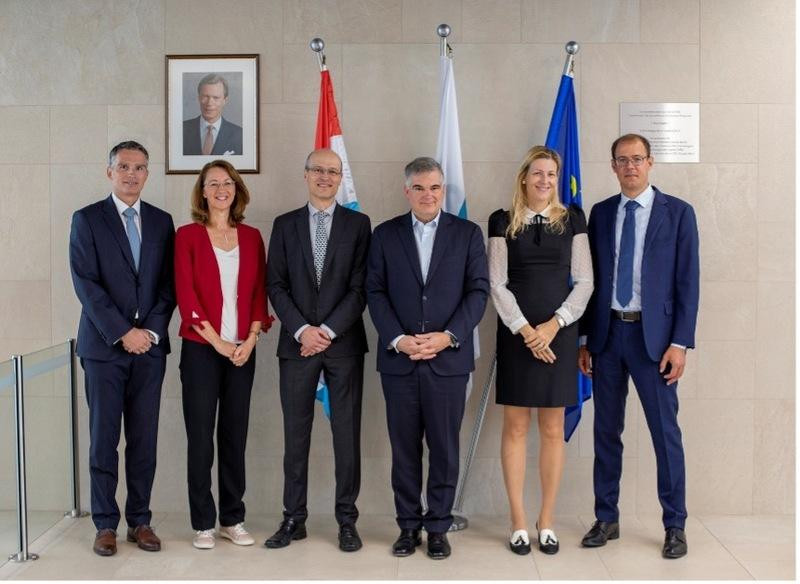As a result of a project started three years ago, the Luxembourg Bankers’ Association (ABBL) has struck a public-private partnership with the Financial Intelligence Unit (CRF) and the Luxembourg Financial Sector Supervisory Commission (CSSF) in the field of anti-money laundering and counter-terrorism financing. The agreement was signed on 13 September and announced on 16 September. The aim is to have authorities and representatives of the banking sector pool their knowledge and expertise.
Read also
“Such a public-private dialogue helps providing clarity on risks related to specific activities, typologies of crimes, regulatory expectations, and also aims at identifying specific areas or issues where more regulatory guidance is needed,” the CSSF in a press release. For this reason, the three organisations decided to set up an expert group composed of the chief compliance officers at financial institutions, and representatives of the ABBL, CSSF and CRF.
Initiative started in 2019
Contacted by Delano’s sister publication Paperjam, the ABBL explained that its role, “as an association bringing together the majority of financial institutions established in Luxembourg”, was to “federate the various banks around the theme of the fight against money laundering and terrorist financing”. The association said that it has been working with its members for many years to monitor regulatory developments and their implementation.
More specifically, the ABBL stated that it has served as a platform for exchange between its members, the CRF and the CSSF in the context of the creation of a public-private partnership. The ABBL had been involved in the discussions regarding the creation of the partnership starting in 2019, with the publication of the first risk assessment of the private banking segment in Luxembourg. “Since then, we have broadened the discussions to broader issues concerning the entire banking sector,” its representative stated.
Exchange of statistics
Beyond the simple dialogue between the three stakeholders, the partnership is targeting data exchange. This is mainly CRF statistics on the types of primary money laundering offences, as well as statistics on the main types of suspicious transaction reports sent by banks to the financial crime watchdog, according to the ABBL. The partnership also aims to “discuss new regulations and their implementation, transaction monitoring and sanction screening”.
Read also
Public-private partnerships in anti-money laundering are beginning to take shape in several jurisdictions. Since February 2021, the Dutch Financial Intelligence Unit has, for example, entered into the Fintel Alliance with Dutch banks. Under this partnership, public and private analysts work together at the same physical location. This enables the banks to search more specifically for indications and patterns of money laundering on the basis of government information.
Originally published in French by and translated for Delano
